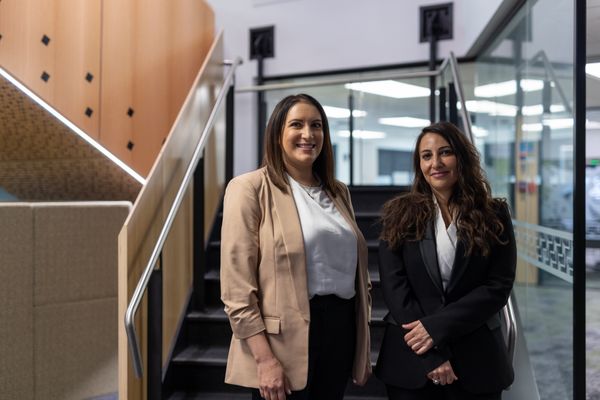Working as an intern or trainee with us
What you'll learn
Our interns and trainees have many opportunities to work with diverse people across a range of settings, as they gain practice experience and grow their skills.
Supported by experienced psychologists, they undertake psychological assessments, provide individual and group treatment, work in a multidisciplinary team, and offer case consultation and training to a range of Corrections staff (for example, probation officers and case managers).

Career opportunities
We value our psychologists and offer a range of opportunities for continuous development.
Many of our interns and trainees choose to continue working with us once they have become a registered psychologist. Some of our psychologists who started off as an intern or trainee today manage psychology teams, hold advisory positions, and work in senior leadership roles across the department.
Internship pathway
What is the internship pathway?
We aim to employ more than 20 intern psychologists every year. Interns join our teams all around the country, gaining practical experience working as a psychologist.
How can I join Corrections as a psychology intern?
To become a psychologist, students are required to undertake undergraduate study in a relevant qualification (for example, a Bachelor of Arts or Science majoring in psychology). After completing undergraduate study to a pre-requisite level, students can then apply to study at a post-graduate level (i.e. Masters or Doctoral) through one of the accredited psychology training programmes.
The final year of study for these programmes include an internship, for which students must be registered as an intern psychologist with the New Zealand Psychologists Board (NZPB).
We predominantly support intern psychologists who are working towards clinical scope registration with the NZPB. When nearing their internship year, students apply to us for an internship role through the university or on our careers website, provide a CV, and attend an interview – much like any other role. If successful, the intern will be offered a fixed term contract for the length of their internship with us.
Supervision to Registration programme
What is the Supervision to Registration programme?
The Supervision to Registration programme is an accredited course for graduates of a Masters of Psychology, providing them the opportunity to train and register as a psychologist.
The programme provides a combination of academic and practice development within the Corrections environment. Each trainee has a comprehensive supervision plan to help guide their development.
How can I join the Supervision to Registration programme?
To be able to be accepted into the Supervision to Registration programme, applicants need to have achieved their Masters of Psychology. Specific pre-requisites are:
- - Masters in Psychology (240 points) at minimum B+ Average
- - Passes in Post-graduate level papers: Psychological/Clinical Assessment; Psychopathology/Abnormal Psychology; Professional Practice and Ethics
Supervision to Registration is a limited entry training programme. When placements on the Supervision to Registration programme are available, they will be advertised on our careers website.
Scholarship pathway
What is the clinical psychology scholarship programme?
Our Clinical Psychology Scholarship Programme is for staff working for Corrections who have been accepted into a Clinical Psychology programme.
Who is eligible to apply for the clinical psychology scholarship?
To be eligible to apply for the scholarship programme, staff must:
- - Be employed permanently and have worked for Ara Poutama Aotearoa for a minimum of 24 months at the time of interview for the scholarship.
- - Have been accepted onto one of the post-graduate clinical psychology programmes of one of the following universities – Auckland, Massey (Auckland, Palmerston North, Wellington), Waikato, Victoria, Canterbury or Otago.
There are a limited number of scholarships available and a selection process for these scholarships usually occurs around December each year.
What does the clinical psychology scholarship cover?
The scholarship may include:
- - Payment of fees for the period of study (2 to 3 years dependant on the individual university programme)
- - A full salary
- - The opportunity to work in a local Ara Poutama Aotearoa psychologists’ office during university holidays to gain valuable experience
- - A final year internship placement in order to complete the requirements for registration as a psychologist
- - A bond whereby on gaining registration as a psychologist, the recipient must work for Ara Poutama Aotearoa for at least the same period of time as they received the scholarship.

